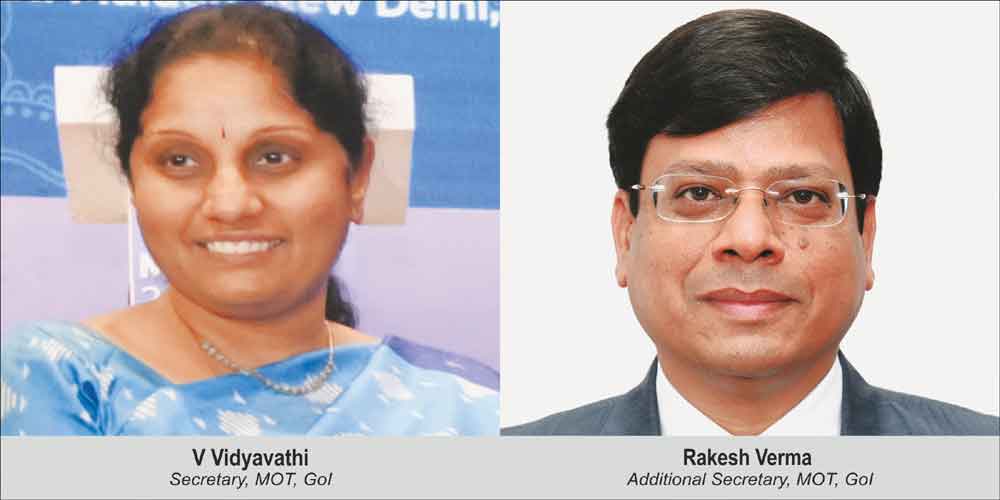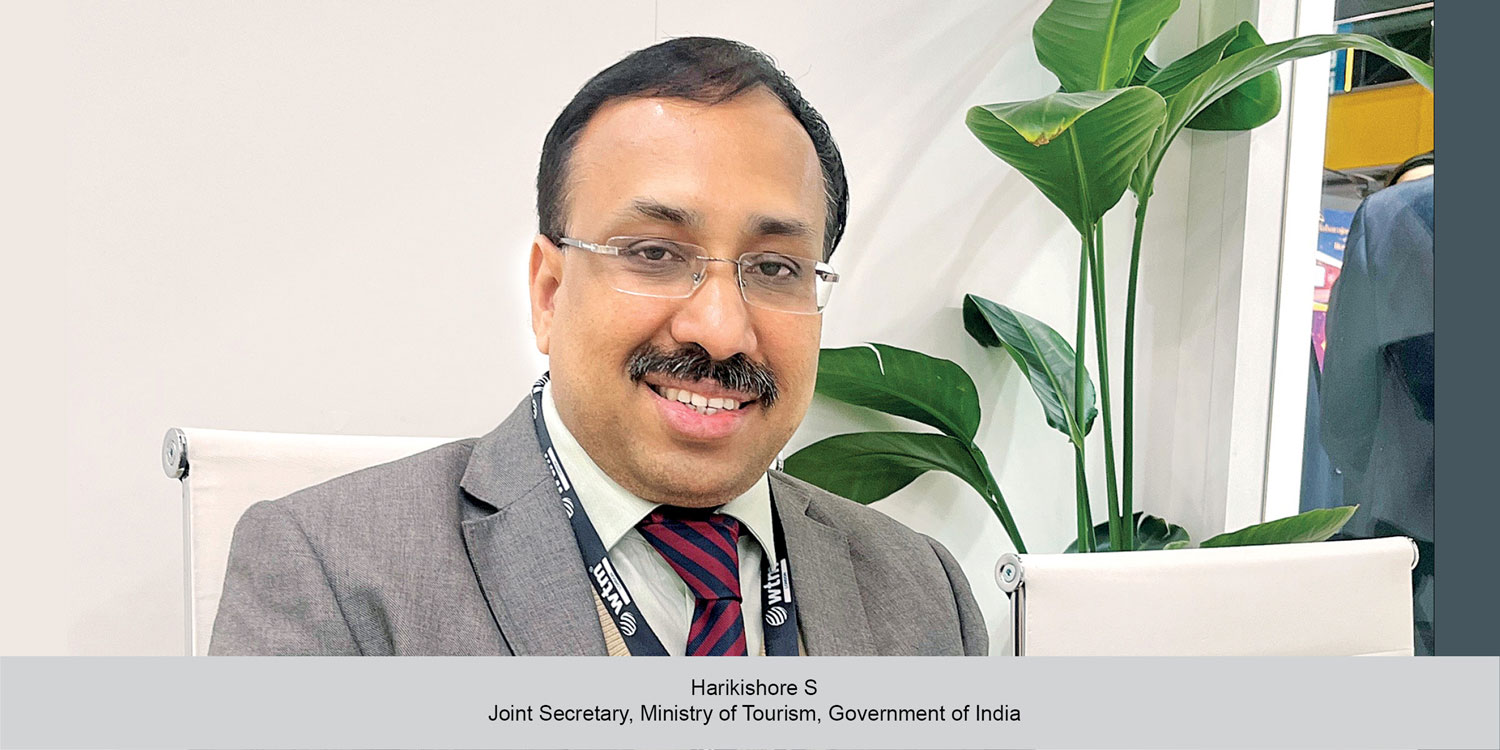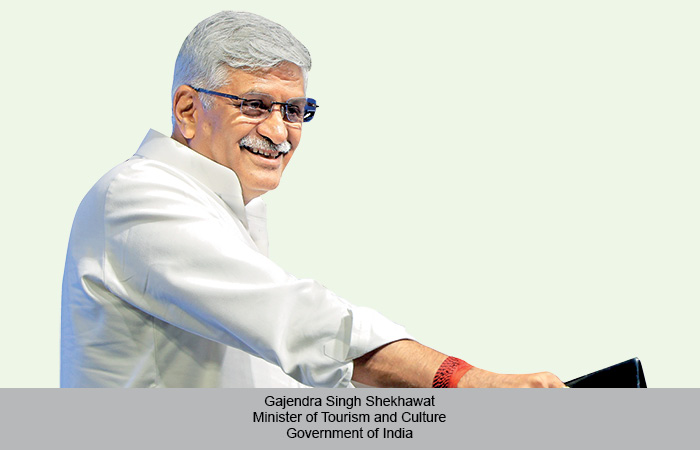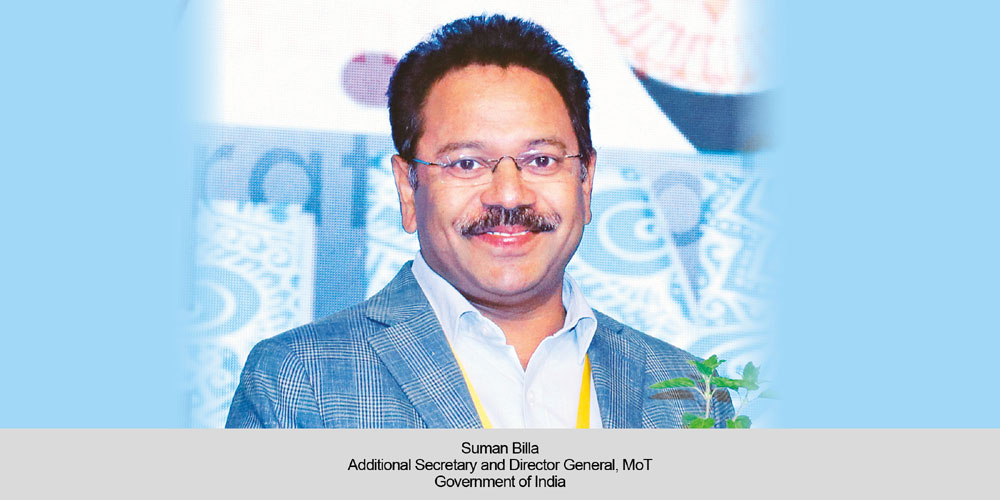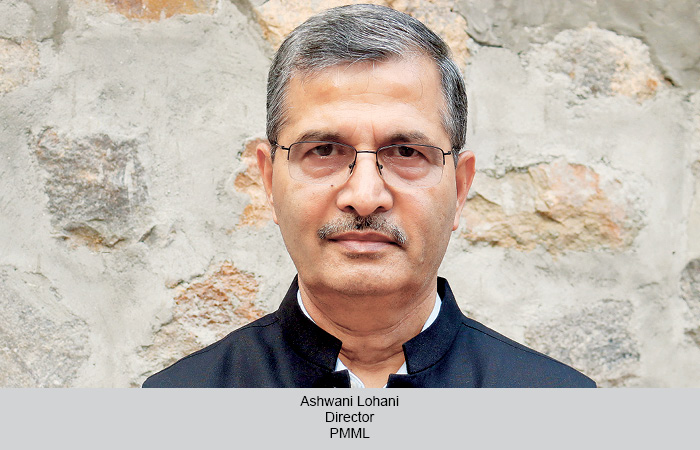‘Travel for LiFE’, one of the most comprehensive sustainability initiatives started by the Union Ministry of Tourism, not just encourages individual responsibility, but also addresses broader aspects of sustainability.
Janice Alyosius
‘Travel for LiFE’ is not just a government initiative; it’s a clarion call to make sustainable and responsible tourism a way of life for every individual, business, and traveller. The program, which is part of the broader ‘Mission LiFE’ of the Indian government, focuses on taking simple, voluntary actions that collectively make a significant impact on the environment and our planet’s future.
V Vidyavathi, Secretary, Ministry of Tourism, Government of India, said that Travel for LiFE is about embracing sustainable practices as part of our daily lives. It’s not about setting a specific end goal but rather integrating eco-friendly actions into our everyday routines. “You don’t need to have a target for travel of life because you can’t have a target for ensuring that a planet survives for much longer than we think it should. Instead, the focus is on making simple changes, like conserving energy and water, reducing carbon emissions, and choosing eco-friendly travel options. These seemingly small steps contribute to a greater, collective goal of preserving our planet,” she said.
Highlighting that Travel for LiFE is going to be a way of life and significant for us in ensuring that our planet survives for much long, Vidyavathi says that is the biggest incentive for the industry to adopt this initiative. “I think we all need the planet, don’t we? I think that’s the biggest incentive. So, we don’t need an incentive for that. I think it’s in the interest of all of us that we follow these actions,” she said.
Rakesh Verma, Additional Secretary, Ministry of Tourism, Government of India, delved into the holistic approach of the Travel for LiFE framework. The MOT unveiled a national strategy for Sustainable Tourism in June 2022. This strategy has now been further enhanced with the incorporation of the Travel for Life framework. Verma said, “This comprehensive approach addresses both the demand side and the supply side of the tourism industry. On the demand side, efforts are focused on raising awareness among tourists. They are encouraged to actively participate in environmental protection and climate action initiatives”.
The program includes a wide range of activities, campaigns, and capacity-building efforts directed at tourists. As the largest stakeholders in the industry, their small actions can have a profound impact on these critical issues.
“Concurrently, on the supply side, various tourism service businesses and the entire value chain are engaged. They are encouraged to follow suit with simple, eco-friendly actions that can positively influence areas such as water conservation, climate action, and energy usage. The initiative encompasses a spectrum of proposed actions, ranging from basic commitments to more detailed and audited certification processes, tailored especially for larger players. In its entirety, this initiative addresses all aspects of the tourism ecosystem, aligning them with sustainability goals that encompass environmental, economic, and sociocultural considerations. It stands as a comprehensive and impactful endeavour,” Verma added.
To supplement Verma’s remarks, Vidyavathi highlighted that the MOT initially introduced a sustainability policy, which, though valuable, remained somewhat generic in nature. Travel for Life has taken this policy to a whole new level by translating it into actionable steps. She said, “It’s important to note that Travel for Life extends beyond mere policy; it’s a substantial shift from the ground level to a higher plane. It encourages individuals, businesses, travellers, and service providers to actively participate. The essence of Travel for Life, a subset of the broader Misson LiFE, is to exemplify a clear pathway for taking pro-planet and sustainable steps in the realm of tourism and travel.”
 TravTalk India Online Magazine
TravTalk India Online Magazine

